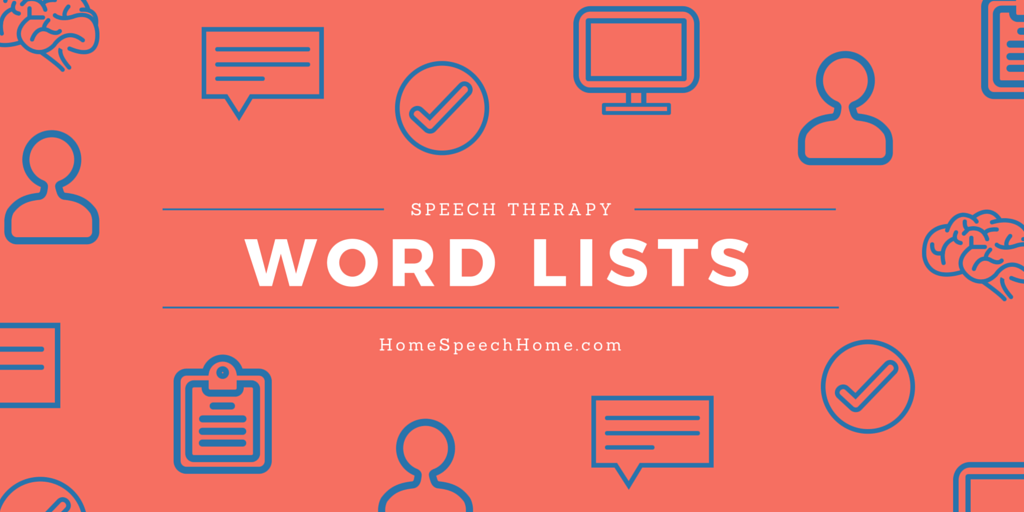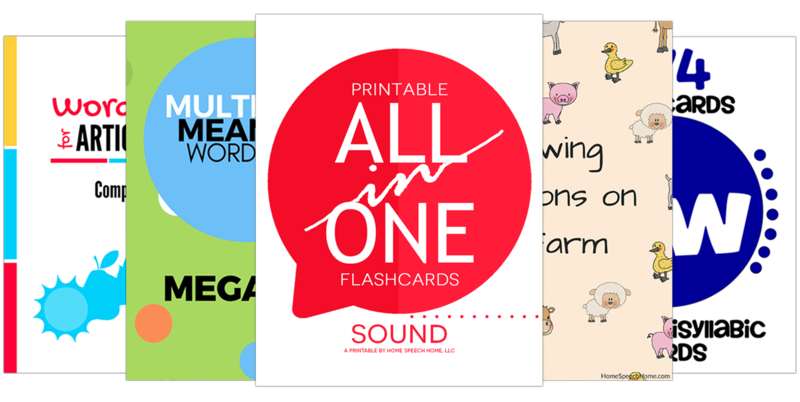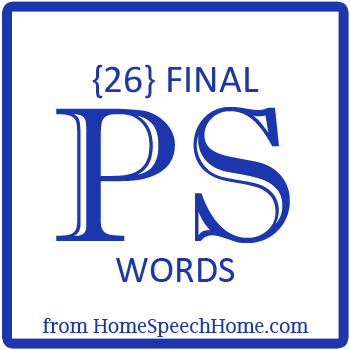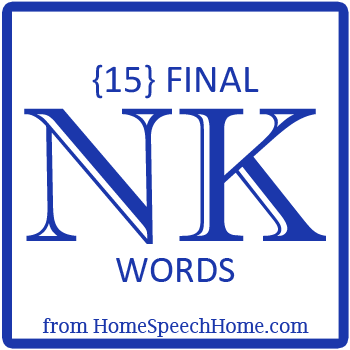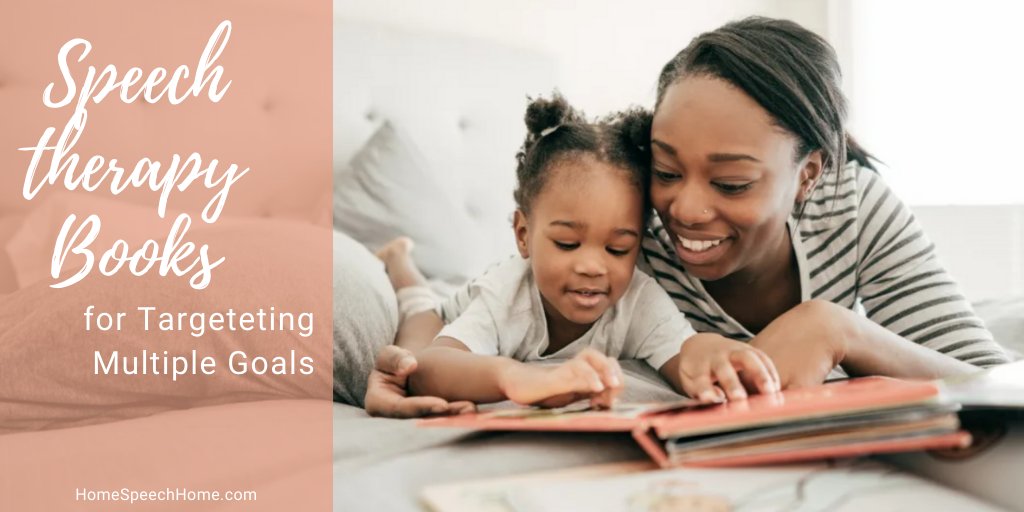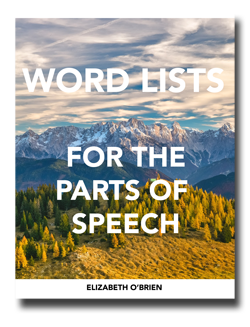If your child is having trouble saying the sound TH, you have come to the right place! My TH word list page will help!
If you are a speech therapist and you need some TH speech therapy materials, hopefully our TH word list can help you!
Below you will find lots of free materials!
- First, there is a FREE worksheet (for non-members) and link (for members) to access new articulation materials.
- Second, there is a word list for quick viewing.
- Next, you can sign up for a FREE newsletter and receive ALL THE WORD LISTS in one Folder in your Google Drive.
- After that, check out a brief explanation on how to say the target sound.
- Last, there are ideas for articulation practice that do not require flashcards or word lists. This is the most functional option and appropriate for children working on generalization.
Enjoy the FREE materials!!!
TH Worksheets & More!
- Members, click here to access more TH worksheets for drill practice, generalization, and language based artic practice: TH Worksheet Section
- If you are not a member, you can sign up for a FREE trial here: Speech Therapy Talk Membership
If you want a free smashmat, just fill out the form below!
TH Voiceless Word List
|
Initial |
Medial |
Final |
|---|---|---|
|
Thunder |
Birthday |
Math |
|
Thermos |
Earthworm |
Month |
|
Thaw |
Toothpicks |
Broth |
|
Thorn |
Toothbrushes |
Earth |
|
Thought |
Bathroom |
Tooth |
|
Thin |
Toothpaste |
Wreath |
|
Thirteen |
Healthy |
Teeth |
|
Throat |
Athlete |
Fifth |
|
Thanksgiving |
Nothing |
Moth |
|
Thumb |
Truthful |
Cloth |
|
Thinking |
Marathon |
Path |
|
Thirty |
Bathrobe |
Strength |
|
Thick |
Pathway |
South |
|
Three |
Toothache |
Underneath |
|
Thursday |
Panther |
Oath |
|
Thimble |
Anything |
Eighth |
|
Thigh |
Method |
Beneath |
|
Theater |
Something |
Ninth |
|
Thousand |
Youthful |
Birdbath |
TH Voiced Word List
|
Initial |
Medial |
Final |
|---|---|---|
|
Them |
Feather |
Breathe |
|
These |
Brother |
Bathe |
|
The |
Mother |
Broth |
|
They |
Father |
Loathe |
|
Than |
Gather |
Seethe |
|
That |
Other |
Clothe |
|
Those |
Another |
Teethe |
|
Though |
Weather |
|
|
Themselves |
Either |
|
|
There |
Together |
|
|
This |
Clothing |
|
|
Therefore |
Bathing |
Google Drive TH Word List & More
I LOVE, LOVE, LOVE Google Drive. I can access my word lists from any device; laptop, desktop, or phone. I no longer have to remember which app is on which device to access all my files and materials.
Also, I can access my word lists WITHOUT the internet.
To grab a copy, fill out the form above. I put all the word lists in one folder. Once you receive your email with the materials, make a copy of the files and they are yours to use and tweak as needed.
- If you need help saving the word lists to your Google Drive, click here: Save Google Document
- If you LOVE Google Drive as much as I do, check out our Speech Therapy Documentation Page.
Complete TH Articulation Packet
This is MY FAVORITE NEW RESOURCE! I HONESTLY use it all the time for each articulation session and handouts for home practice. Check it out if you need more in-depth materials.
For only $5, you will receive 35 pages of materials including:
- Flashcards that can be used as Cariboo Cards too, yeah!
- Flashcard free games that can be used as home practice
- Dot sheets, smash-mats, and/or coloring pages
- Articulation warm-up sheets which can be used as a goal review sheet
- Cue cards
- Word lists
- Flashcards which contain word, phrase, and sentence level practice
- Cut/paste sentence level worksheets
- Self-assessment sheets
- Parent handouts
- And more!
Check it out here
How To Say TH
TH is produced by sticking your tongue out slightly between your teeth and blowing air
- Voiced «th» — voice box is turned on
- Voiceless «th» — voice box is turned off
Articulation Games for TH
The «TH» sound is a later developing sound, usually mastered by 6 years of age. Voiced and voiceless «TH» words are mixed below.
Take turns with your child saying the desired words. It is important to practice hearing as well as saying the words.
- Thank You — Say «thank you» throughout the day with a good «th» sound
- Mother — Say «mother» instead of mom while driving in a car
- Bathtub — Say «bathtub» as you fill it with water
- Toothpaste — Say «toothpaste» 5 times before brusing teeth
- Mouth — Say «mouth» as you make silly faces
- Bathe — Say «bathe» as you wash your pet
- Feather — Say «feather» as you make feathers
- The — Say «the» correctly while reading a page out of a book
- Thirty — Say «thirty» as you count from 20-40
- Something — Say «something» during a guessing game…I have «something» behind my back
Membership Site
If your child has trouble saying multiple sounds AND you want a step-by-step guide to help your child AND you want ideas on how to increase vocabulary, improve grammar, follow directions, and much more….consider our members site!
If you are a professional and you want:
- Articulation Screening Tools
- Data tracking sheets
- Templates in Google Drive for easy data tracking and graphing
- Homework sheets/parent handouts on articulation therapy
- General flashcard games
- 36 flashcards for each sound: B, D, F, G, J, K, L, M, N, P, R, S, T, V, Z, SH, TH, CH
- 8-10 functional games for each sound
- Language based worksheets to spice things up!
- Picture description tasks
- Short story stimuli
Our membership might be just what you need!
Targeted Word Lists
for Speech Therapy Practice
The speech therapy word lists are perfect for anyone who needs practice with speech and language concepts. For any type of practice…
…you need words to get started.
Now I don’t know about you, but when I need to think of targeted words to use…
…I suffer from spontaneous memory loss, or SML.
It’s more common than you might think 
This page has words for anyone to practice articulation, apraxia, language, phonology, or stuttering principles. They will help children and adults be successful meeting their goals.
Buy Flashcards for All Articulation Words for $69.99
Explore Our Goal Reaching, Client Centered Products
Articulation
Each list of articulation sounds contains words with the target sound in the beginning, middle, and end position, including blends when applicable, as well as words that…
- are common and functional (words we use all day…everyday)
- are mostly 1 syllable (multi-syllabic words are more difficult)
- have a phonemic context that don’t interfere with production of the target sound (most words)
Example:
If «R» is the problem sound using the word «Rope» makes saying the «R» sound harder because the «O» sound is considered a round vowel.
A round vowel is one where you round your lips to say it. Go ahead…try it by saying «O» as in «boat». You rounded your lips didn’t you? I thought you might.
Children who have difficulty with the «R» sound tend to say the «W» sound…they say «Wabbit» instead of «Rabbit».
The «W» sound is considered a rounded sound too. Try saying the «W» sound without rounding your lips…you can’t because that is how the sound is made.
So by pairing the «R» sound with the «O» sound like in the word «Rope», this makes the word extra difficult for a child who has a problem saying the «R» sound because the «O» that follows the «R» will naturally make them want to round there lips.
SEE ALSO: The Best Free App for Speech Therapy
Phonology
Language
Social Language
SEE ALSO: The Best Books for Speech Therapy Practice
Do you have a request for a word list we don’t have?
Please contact us and we’ll get it put on right away.
Freebies, Activities, and Specials, Oh My!
Sign up for Terrific Therapy Activity Emails
Your information is 100% private & never shared.
Homepage
>
Speech Therapy Word Lists
Are you looking for word lists for the parts of speech? Look no further! I’ve got you covered.
These word lists will help you if you’re struggling to remember the definitions of the eight parts of speech, and they’ll be a good refresher if you’ve already learned them.
Click on the links below to see word lists for each part of speech.
List of Nouns
This list of nouns will give you plenty of examples of nouns!
Nouns are words that name people, places, things, or ideas. There are may different types of nouns: proper nouns, common nouns, abstract nouns, concrete nouns, collective nouns, compound nouns… and more.
List of Pronouns
See examples of pronouns with this list of pronouns.
Pronouns are words that take the place of nouns. Just as there are many different types of nouns, there are also different types of pronouns. Here are a few: reflexive pronouns, indefinite pronouns, relative pronouns, personal pronouns, and more.
List of Verbs
On the list of verbs page, you’ll see examples of verbs, and you’ll also learn a little song to help you remember the helping verbs.
Verbs are the «do»ers and the «be»ers of our language. They show action and states of being. Guess what? There are different types of verbs. (Are you noticing a pattern here?) Action verbs and linking verbs can be main verbs in a sentence, and helping verbs are verbs that help these two main verbs.
Examples of Adjectives
On the examples of adjectives page, you’ll see examples of proper adjectives, comparative adjectives, and superlative adjectives.
By the way, adjectives are words that describe nouns and pronouns.
List of Adverbs
This list of adverbs is categorized by the adverb questions, making it easy for you to see how they work.
Adverbs modify verbs, adjectives, and other adverbs. You can tell if a word is an adverb by seeing if it answers one of the adverb questions: How? When? Where? Why? and To what extent?
List of Prepositions
You get to hear another song on the list of prepositions page!
If you know Yankee Doodle, it will be easy for you to memorize this little song with prepositions in it.
List of Conjunctions
This list of conjunctions shows you examples of each type.
Conjunctions are joining words. They join two or more elements in a sentence.
There
are only three types of conjunctions to learn: coordinating
conjunctions, subordinating conjunctions, and correlative conjunctions.
Would you like to download these word lists?

- Word Lists for the 8 Parts of Speech (Nouns, Pronouns, Verbs, Adjectives, Adverbs, Prepositions, Conjunctions, & Interjections)
- 17 Pages
- Printable
- 100% Money-Back Guarantee
- Only $2.99
List of Interjections
This alphabetical list of interjections will help you find the interjection that you are looking for.
Yippee! It’s time to learn about interjections! Interjections are words that show emotion. They are not divided up into different types.
Question: Whenever I have my hearing tested, it seems the audiologist uses the same list of words each time. I can understand this for people who have never been tested before, but when I get my hearing tested regularly, isn’t this sort of ridiculous? I mean, I’ve half-memorized the word list so I’m not getting fair test results, am I?—D. P.
Answer: I understand your concerns, but your questions reflect a fundamental misunderstanding of the whole audiometric testing process. When you go to your audiologist for a complete audiological evaluation, your audiologist performs a whole battery of tests. The speech audiometry portion of your audiological evaluation consists of not just one, but two “word” tests—the Speech Reception Threshold (SRT) test and the Speech Discrimination (SD) or Word Recognition (WR) test. The SRT and the SD/WR tests are entirely different tests—each with totally different objectives. Unfortunately, many people somehow “smoosh” these two tests together in their minds, hence the confusion and concern expressed in your questions. Let me explain.
Speech Reception Threshold (SRT) Testing
The purpose of the Speech Reception Threshold (SRT) test, sometimes called the speech-recognition threshold test, is to determine the softest level at which you just begin to recognize speech. That’s it. It has nothing to do with speech discrimination.
Audiologists determine your Speech Reception Threshold by asking you to repeat a list of easy-to-distinguish, familiar spondee words. (Spondee words are two-syllable words that have equal stress on each syllable. You’ll notice that when you repeat a spondee, you speak each syllable at the same volume and take the same length of time saying each syllable.) Here are examples of some of the spondee words used in SRT testing: baseball, cowboy, railroad, hotdog, ice cream, airplane, outside and cupcake.
When you take the SRT test, your audiologist will tell you, “Say the word ‘baseball.’ Say the word ‘cowboy.’ Say the word ‘hotdog.’” etc. As she does this, she varies the volume to find the softest sound level in decibels at which you can just hear and correctly repeat 50% of these words. This level is your SRT score expressed in decibels (dB). You will have a separate SRT test for each ear.1
If your SRT is 5 dB (normal), you can understand speech perfectly at 21 feet and still catch some words at over 100 feet. If you have a mild hearing loss—or example a SRT of 30 dB—you could only hear perfectly at 1 foot but could still hear some words at 18 feet. If your SRT is 60 dB (a moderately severe hearing loss), you would need the speaker to be only 1 inch from your ear in order to hear perfectly and within 1 foot to still hear some of the words correctly.2
Now, to address your concerns about memorizing the words in the word lists. For the record, you should be familiar with all the spondee words in the list before testing commences because this familiarization results in an SRT that is 4 to 5 dB better than that obtained if you didn’t know them.3
Bet you didn’t know this, but there are actually two standardized spondee word lists—not just one. Each list consists of 18 words. These words are “phonetically dissimilar and homogeneous in terms of intelligibility.”3 That is just a fancy-pants way of saying that all these words sound different, yet are equally easy to understand. Spondees are an excellent choice for determining your Speech Reception Threshold because they are so easy to understand at faint hearing levels.3
Let me emphasize again, you are supposed to know these words. They are not supposed to be a secret. However, this doesn’t mean that because you know a number of the words on this list, that you have memorized them. In fact, it would be difficult since there are two different SRT word lists, and your audiologist may go from top to bottom, or bottom to top, or in random order. Thus, although you are generally familiar with these words, and can even recite a number of them from memory, you still don’t know the exact order you’ll be hearing them so you cannot cheat. Thus, you can set your mind at rest. Your SRT scores are still perfectly valid even though the words “railroad,” “cowboy” and “hotdog” are almost certainly going to be in one of those lists.
Why is knowing your Speech Reception Threshold important? In addition to determining the softest level at which you can hear and repeat words, your SRT is also used to confirm the results of your pure-tone threshold test. For example, there is a high correlation between your SRT results and the average of your pure-tone thresholds at 500, 1000, and 2000 Hz. In fact, your SRT and 3-frequency average should be within 6 dB of each other.4 Furthermore, your Speech Reception Threshold determines the appropriate gain needed when selecting the right hearing aid for your hearing loss.4
Discrimination Testing
The purpose of Speech Discrimination (SD) testing (also called Word Recognition (WR) testing) is to determine how well you hear and understand speech when the volume is set at your Most Comfortable Level (MCL).
To do this, your audiologist says a series of 50 single-syllable phonetically-balanced (PB) words. (Phonetically-balanced just means that the percent of time any given sound appears on the list is equal to its occurrence in the English language.5 For this test, your audiologist will say, “Say the word ‘come.’ Say the word ‘high.’ Say the word ‘chew.’ Say the word ‘knees,’” and so on. You repeat back what you think you hear.
During this test, your audiologist keeps her voice (or a recording on tape or CD) at the same loudness throughout. Each correct response is worth 2%. She records the percentage of the words you correctly repeat for each ear.
For the best results, the Speech Discrimination word list is typically read at 40 decibels above your SRT level (although it may range from 25-50 dB above your SRT level, depending on how you perceive sound).4
Your Speech Discrimination score is an important indicator of how much difficulty you will have communicating and how well you may do if you wear a hearing aid. If your speech discrimination is poor, speech will sound garbled to you.
For example, a Speech Discrimination score of 100% indicates that you heard and repeated every word correctly. If your score was 0%, it means that you cannot understand speech no matter how loud it is1—speech will be just so much gibberish to you. Scores over 90% are excellent and are considered to be normal. Scores below 90% indicate a problem with word recognition.3 If your score is under 50%, your word discrimination is poor. This indicates that you will have significant trouble following a conversation, even when it is loud enough for you to hear.2 Thus, hearing aids will only be of very limited benefit in helping you understand speech. If your speech discrimination falls below 40%, you may be eligible for a cochlear implant.
Incidentally, people with conductive hearing losses frequently show excellent speech discrimination scores when the volume is set at their most comfortable level. On the other hand, people with sensorineural hearing losses typically have poorer discrimination scores. People with problems in the auditory parts of their brains tend to have even poorer speech discrimination scores, even though they may have normal auditory pure-tone thresholds.3
Unlike the SRT word lists (railroad, cowboy, hotdog, etc.), where everyone seems to remember some of the words, I have never come across a person who has memorized any of the words in the speech discrimination lists. In fact, as the initial questions indicated, people mistakenly think the SRT words are used for speech discrimination. This is just not true. In truth, the SD words are so unprepossessing and “plain Jane” that few can even remember one of them! They just don’t stick in your mind!
For example, one Speech Discrimination list includes words such as: “are,” “bar,” “clove,” “dike,” “fraud,” “hive,” “nook,” “pants,” “rat,” “slip,” “there,” “use,” “wheat” and 37 others. How many of you remember any of these words?
One person asked, “Why aren’t there several different word lists to use?” Then our audiologists would find out if we really heard them.”
Surprise! This is what they already do. There are not just one, but many phonetically-balanced word lists already in existence. In case you are interested, the Harvard Psycho-Acoustic Laboratory developed the original PB word lists. There are 20 of these lists, collectively referred to as the PB-50 lists. These 20 PB-50 lists each contain 50 single-syllable words comprising a total of 1,000 different monosyllabic words. Several years later, the Central Institute for the Deaf (CID) developed four 50-word W-22 word lists, using 120 of the same words used in the PB-50 lists and adding 80 other common words. Furthermore, Northwestern University developed yet four more word lists6 (devised from a grouping of 200 consonant-nucleus-consonant (CNC] words). These lists are called the Northwestern University Test No. 6 (NU-6).4
As you now understand, your audiologist has a pool of over 1,000 words in 28 different lists from which to choose, thus making memorizing them most difficult. (In actual practice, audiologists use the W-22 and NU-6 lists much more commonly than the original PB-50 lists.) In addition to choosing any one of the many speech discrimination word lists available to her, your audiologist may go from top to bottom, or bottom to top so you still don’t know what word is coming next. Thus you can rest assured that your word discrimination test is valid. Your memory has not influenced any of the results.
In addition to determining how well you recognize speech, Speech Discrimination testing has another use. Your audiologist uses it to verify that your hearing aids are really helping you. She does this by testing you first without your hearing aids on to set the baseline Speech Discrimination score. Then she tests you with your hearing aids on. If your hearing aids are really helping you understand speech better, your Speech Discrimination scores should be significantly higher than without them on. If the scores are lower, your audiologist needs to “tweak” them or try different hearing aids.
To Guess or Not To Guess, That is the Question
One person asked, “Do audiologists want us to guess at the word if we are not sure what the word is? Wouldn’t it be better to say what we really hear instead of trying to guess what the word is?”
Good question. Your audiologist wants you to just repeat what you hear. If you hear what sounds like a proper word, say it. If it is gibberish and not any word you know, either repeat the gibberish sounds you heard, or just say that you don’t have a clue what the word is supposed to be. If you don’t say anything when you are not completely certain of the word, you are skewing the results because sometimes you will hear the word correctly, but by not repeating what you thought you heard, you are deliberately lowering your discrimination score.
Another person remarked, “I remember a while back; when I was taking the word test, there was a word that sounded like the 4 letter word that begins with an ‘F’. I knew it wasn’t that word, and I would not say ‘F***.’” In that case, if you are not comfortable repeating what you “heard,” just say it sounded like a “dirty” word and you don’t want to repeat it. You audiologist will know you got it wrong as there are no “dirty” words on the PB lists.
____________________
References
1 ASHA. 2005. http://www.asha.org/public/hearing/testing/assess.htm.
2 Olsson, Robert. 1996. Do You Have a Hearing Loss? In: How-To Guide For Families Coping With Hearing Loss. http://www.earinfo.com. p. 3.
3 Pachigolla, Ravi, MD & Jeffery T. Vrabec, MD. 2000. Assessment of Peripheral and Central Auditory Function. Dept. of Otolaryngology. UTMB.http://www.utmb.edu/otoref/Grnds/Auditory-assessment/200003/Auditory_Assess_200003.htm.
4 Smoski, Walter J. Ph.D. Associate Professor, Department of Speech Pathology and Audiology, Illinois State University. http://www.emedicine.com/ent/topic371.htm.
5 Audiologic Consultants. 2005.http://www.audiologicconsultants.com/hearing_evaluations.htm
6 Thompson, Sadi. 2002. Comparison of Word Familiarity: Conversational Words v. NU-6 list Words. Dept. Sp. Ed. & Comm. Dis. University of Nebraska-Lincoln. Lincoln, NE. http://www.audiologyonline.com/articles/arc_disp.asp?id=350.
THE VOCABULARY OF FOOD | VOCABULARY | ENGLISHCLUB
Web diet (noun): all the foods a person or animal usually eats — My doctor said a vegetarian diet rich in protein is best. dish (noun): 1. a deep plate for cooking or serving food — I baked the pie in a special pie dish. 2. food …
From englishclub.com
TH WORD LIST FOR SPEECH THERAPY
Web It is important to practice hearing as well as saying the words. Thank You — Say «thank you» throughout the day with a good «th» sound. Mother — Say «mother» instead of mom while driving in a car. Bathtub — Say «bathtub» …
From speechtherapytalk.com
SH WORD LIST FOR SPEECH THERAPY
Web Splashing — Say «splashing» as you splash in a pool Pushing — Say «pushing» while you push each other in a sled or push a car down a ramp Cash — Say «cash» while you count dollar bills in a wallet Trash — Say …
From speechtherapytalk.com
147+ FINAL K SPEECH THERAPY WORDS FOR ARTICULATION
Web Mar 22, 2022 Final K Words Speech Therapy. Below is a list of final k words to practice during your student’s speech therapy session or simply send the link to this website to a …
From speechtherapystore.com
SPEECH THERAPY FOOD THEME TEACHING RESOURCES | TPT
Web Food Groups Sort Food Themed Activities Speech Therapy by Badger State Speechy 4.9 (31) $6.00 PDF This fun food group sort product give students opportunities to sort and …
From teacherspayteachers.com
CH WORD LISTS AND SPEECH THERAPY ACTIVITIES — SPEECH AND …
Web A Speech Therapist shares tips on how to teach the Ch sound. Learn about voice and voiceless pairs. Includes initial Ch word list, medial Ch word list, and final Ch word …
From speechandlanguageathome.com
WORD LISTS SPEECH THERAPY — TEACHERSPAYTEACHERS
Web Use these FREE lists of words in speech therapy for so many purposes to achieve lots of articulation trials!The articulation word lists are simple, yet so versatile for getting tons of …
From teacherspayteachers.com
PARTS OF SPEECH LISTS — GRAMMAR MONSTER
Web Lists Categorized by Part of Speech. These lists are intended as a resource for teachers or advanced English learners. All of the lists are printable, sortable, and editable. To help …
From grammar-monster.com
FOOD VOCABULARY WORD LIST — ENCHANTED LEARNING
Web A B C D E F G H I J K L M N O P Q R S T U V W Y Z A acorn squash alfalfa sprouts almond anchovy anise appetite appetizer apple apricot artichoke asparagus aspic …
From enchantedlearning.com
T WORD LISTS AND SPEECH THERAPY ACTIVITIES — SPEECH AND …
Web T Word Lists and Activity Ideas for Speech Therapy. A Speech Therapist shares tips on how to teach the T sound. Learn about voice and voiceless pairs. Includes initial T word …
From speechandlanguageathome.com
90+ ST WORDS SPEECH THERAPY + PDF BLENDS
Web Phonological Processes. One phonological disorder a child or student might be experiencing when it comes to s blends in the initial position of words is called consonant cluster …
From speechtherapystore.com
SPEECH THERAPY WORD LISTS — COOPERATIVE
Web S WORDS Beginning Middle Ending sit soup salt seal sick sing sun save seed seat city said sad sorry soap sock sail sour sign sand soft seven
From mt08000619.schoolwires.net
F & V: WORDS, LISTS, MATERIALS & EVERYTHING YOU NEED!| SPEECHY …
Web Feb 24, 2022 F Sound Errors. Errors with the /f/ and /v/ sound can be all over the place. Sometimes children have difficulty with voicing, meaning their /f/ sounds like /v/ or vice …
From speechymusings.com
SPEECH THERAPY FREE WORD LISTS – SHINE SPEECH ACTIVITIES
Web 1000’s of words for speech therapy practice, at your fingertips. R Word List. L Word List. S Word List. Z Word List. SH Word List. CH Word List. Voiced TH Word List. …
From shinespeechactivities.com
K AND G WORDS, LISTS, MATERIALS, AND EVERYTHING YOU NEED!
Web Feb 23, 2022 freebies. articulation. Articulation. K and G Words, Lists, Materials, and Everything You Need! First of all, if you’re in a rush and need some quick /k/ and /g/ …
From speechymusings.com
WORD LISTS FOR THE PARTS OF SPEECH — ENGLISH GRAMMAR REVOLUTION
Web It’s time to learn about interjections! Interjections are words that show emotion. They are not divided up into different types. Word Lists for the 8 Parts of Speech (Nouns, Pronouns, …
From english-grammar-revolution.com
FREE SPEECH THERAPY WORD LISTS — F ARTICULATION
Web Words, cartoons, and real pictures included for a variety of ways to practice. This resource includes 6 different ways to practice categories, including describing, naming, grouping, …
From shinespeechactivities.com
R WORD LIST SPEECH TEACHING RESOURCES | TPT
Web Includes 61 different word lists, each covering a different theme or topic. Some examples of themes included in this resource are…Food (fruits, vegetables, entrees, etc.)Technology …
From teacherspayteachers.com
WORD LISTS FOR SPEECH THERAPY
Web Click on a letter below to take you to the corresponding FREE list, Google Drive version, free handouts, quick cues, and activities that require NO device or Flashcards! …
From speechtherapytalk.com





